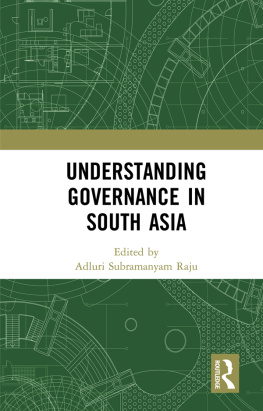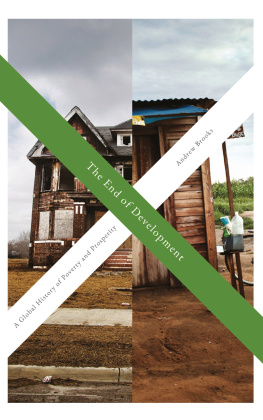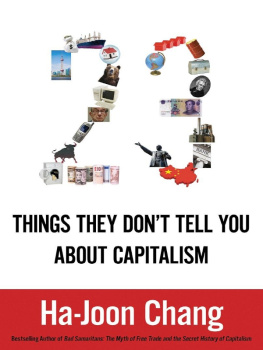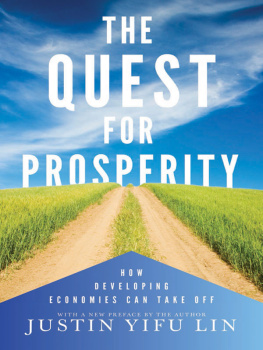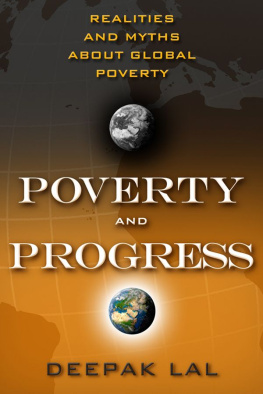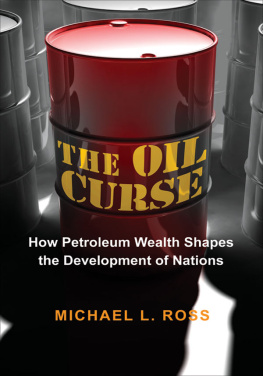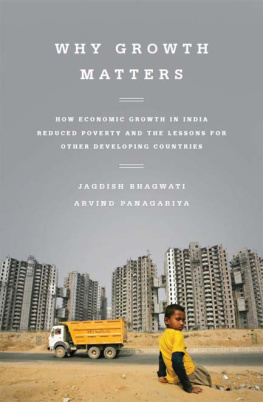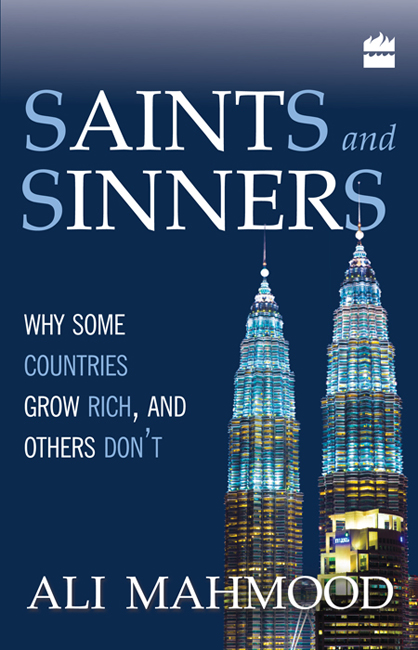
SAINTS AND SINNERS
Why Some Countries Grow Rich,
and Others Dont
Ali Mahmood

HarperCollins Publishers India
To Shaukat and Billo
With thanks to Ali, Ghalib, Yahia and Zia
good friends in bad times
Contents
When Gunnar Myrdal wrote his Asian Drama: An Enquiry into the Poverty of Nations in 1968, shaking off the shackles of poverty seemed an almost impossible task. Since then many countries that were formerly poor have grown relatively rich. Rising standards of living and growing economies have resulted both from good governance and from natural resource wealth, particularly oil.
But why have some countries prospered while the others have been left behind? This book looks at the key factors that have enabled some countries to grow rich while others remain poor. The two most deadly traps for developing countries are conflict and corruption. Countries that fall victim to conflict are unlikely to see prosperity and growththe only exception to this has been Israel, where exceptional growth has taken place in the midst of never-ending conflict. After conflict, corruption has been the most important cause of failure in developing nations. But where peace, stability and clean government are essential to growth and prosperity, democracy is not. Opinion is divided as to whether democracy helps or hinders development, but there is no denying that some of the most successful states across the world have not been democratic but then, neither were those countries that suffered great disasters under greedy and wicked dictators. A very important factor is the relationship with superpowersin our time, basically the US. The US can make you or break you, not just by war but also because of its overwhelming economic power. There are many reasons for spectacular successtwo that readily spring to mind are oil and diamonds; but even fabulous natural resource wealth is not enough. The essentials for success in creating prosperity are good governance and leadership and very often they are the two sides of the same coin.
This book basically looks at the struggles of developing nations in Asia and Africawhy some have made a mess at the cost of great human suffering, and how some have reduced or even eradicated poverty; it covers current affairs, recent history, political economy and development. Perhaps, because I come from a poor country, Pakistan, I wanted to know what road could lead a poor country out of poverty, out of misery. In 1972, I spent a year in jail, much of it in solitary confinement; my morning discipline was reading Gunnar Myrdals book. Since that time, I have continued looking for the answer to that question.
This book is aimed at three types of readers; first, professionals who are concerned with the region, including administrators, bankers, politicians and others who need to understand poverty, development and the likelihood of moving from one to the other; second, students who want to understand the story of success and failure in the region; and third, those who are just curious about the world they live in, and have the time to read a simple book about it. The book targets the young who are eager to know. The decision to write Saints and Sinners was made one evening when a young girl who worked as an anchor on my TV channel came to my apartment and asked me about a painting there, Who is this man? I replied it was Mao Zedong. Who is he? she asked. I told her he was Chairman Mao, the historic leader of China. To my astonishment, she had never heard of him, despite the fact that she was active in the media, and was a presenter of a daily chat show. She was an avid reader of the local newspapers, but the chairman had long slipped from their front pages. To be fair to the girl, she was equally amazed by my ignorance when she talked of Tupac Shakur.
My opinions have been fashioned by books; I have never been a keen reader of newspapers and agree with the statement of Thomas Jefferson that If you dont read the newspapers you are uninformed. If you do read the paper, you are misinformed. Many books have thrilled me; an equal number have bored me. But some books have been crucial to the way I look at the worldthis small list would include William Blums Rogue State: A Guide to the Worlds Only Superpower, Joseph Stiglitzs Globalization and Its Discontents, Paul Colliers The Bottom Billion and Ha-Joon Changs Kicking Away the Ladder. The Internet, also, has been an indispensible tool for research.
The first section of the book deals with conflict. After an introduction on how conflict damages countries, a series of short chapters deal with conflict in the following countries:
- North Africa
- Liberia and Sierra Leone
- Angola
- Ethiopia and Eretria
- Israel and Palestine
- Iraq and Iran
- Russia and Yugoslavia
- South Asia: India and Pakistan
The main areas of conflict that are covered here relate to Africa, the Middle East and South Asia. This does not mean that Southeast and Far East Asia were conflict free; on the contrary, they too experienced disastrous wars. Japan not only experienced defeat in the Second World War, but also with the tragedies of Hiroshima and Nagasaki, is the only country to have suffered the massive destruction of nuclear bombing. Both Korea and Vietnam were split in two by war, and Korea still remains a divided nation with the communist North facing off a very capitalist South. But these conflicts and wars have now receded into the past, and these nations having suffered the worst of war have learned from their experience and value peace. Even China has avoided war in its confrontations with Taiwan. The Yugoslav Wars, strictly speaking, relate to Europe and not Asia, but have been included to show that even civilized Europeans are capable of depravity, and have had to suffer from religious conf lict between Christian Serbs and Muslim Bosnians. Many of these countries have not been able to recover from the wounds, with Angola being an example of a war-ravaged nation which recovered well, particularly because of the abundance of oil. Angola has been one of the stars of growthmatching China for the last decade. Israel is the only country that has prospered through and perhaps because of war, proving the exception to the rule that war usually is unmitigated disaster.
The next section deals with corruption. Despite the overwhelming empirical evidence against corruption, many continue to argue that the damage it causes is limited; some even claim that it can be beneficial! Perhaps this is because corruption has a massive constituency of those that are corrupt, and those who earn their livelihood through corruption. The reality, however, is that after conflict, corruption is the greatest barrier to growth and the greatest enemy of human happiness. One leader who recognized this was Lee Kuan Yew who created a corruption-free government, making Singapore the best run government in the world. Botswana is another example of a country that succeeds by clean governance. It is no coincidence that the Transparency International list shows successful countries as the least corrupt and unsuccessful countries as the most corrupt. The section on corruption illustrates how it effects and obstructs development. Economic activity is slowed down, efficiency falls, the rule of law is weakened as the courts fail to deliver justice, while the police prey on the populace.
Short chapters describe the tragic destruction that corruption has caused in some of the worst-hit countriesIraq, Russia, Nigeria and Indonesia. We also look at the two giants: India, where everyone steals but no one gets caught, and China, where extreme measures have been taken to stop corruption.
Next page

